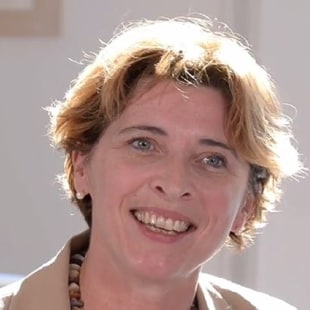Four concepts that help to explain what we're seeking to achieve: SSE, Social Entrepreneurship, Social Business, Microfinance
The Social and Solidarity-based Economy (SSE)
Social Economy actors are defined by their legal status (charities, foundations, cooperatives, mutual societies, federations, etc.) and their particular mode of governance with 1 person = 1 vote. When Social Economy actors are also Solidarity-based (SSE), it is because, in addition to their legal status and mode of governance, they have a general interest mission that aims to improve society and/or protect the environment (living conditions, access to education, employment, recycling, etc.).
In July 2014 the Social and Solidarity Economy Act came into force in France. It underlined the importance of SSE and strengthened the support mechanisms for this ecosystem, which is essential for living together and for the economy in general. In particular, it created the ESUS label (Entreprise solidaire d'utilité sociale), which aims to promote the development of this sector by extending it to certain structures with commercial status that were previously excluded.The Memorandum by the National Observatory for SSE published in late 2019 thus reveals that the social and solidarity-based economy accounts for 2.4 million employees in France, i.e. 14% of private sector jobs. SSE companies alone created 71,100 jobs between 2010 and 2018. The UN presents the SSE as an indispensable means of achieving the Sustainable Development Goals. Job creation, innovation pool, growth lever, societal and economic link: more than ever, SSE is at the heart of a sustainable economy.
Social Entrepreneurship
Social entrepreneurs are characterised by their stated intention of responding to economic, social and environmental needs that are poorly or inadequately addressed (professional integration of vulnerable people, access to health, housing, education, fair trade, circular economy, etc.) by providing effective, innovative and concrete solutions (products or services) based on a sustainable economic model. This explicit societal mission, which is also a high priority, is generally enshrined in the Articles of Association of the social enterprise and often results in the substantial reinvestment of profits in the enterprise, with the aim of maximising its societal impact.
Among the social entrepreneurs that we support, Jean Moreau, Managing Director of Phenix comments: "We created Phenix in 2014 to fight food waste. The idea was simple: offer manufacturers the opportunity to market their unsold products at a lower cost via an application, or to donate them to charities. Our activity makes it possible to transform a cost (an unsold product) into a profit because we reduce the cost of destroying unsold products and therefore the waste bill." The result: 170 jobs created and turnover of €15 million. France is among the SEE pioneer countries, ranked 3rd in the world by Thomson Reuters in 2019, behind Canada and Australia and ahead of Belgium and Singapore. This is a movement that is spreading rapidly around the world.
Social Business
A social business closely resembles a social enterprise. The main difference lies in the profit management model: a social business is required to reinvest all of its profits (if any) in the company. Like the social enterprise, social businesses are part of the social and solidarity-based economy, provided they have obtained the ESUS label.
Microfinance
Microfinance is a subset of Social Entrepreneurship, promoting the accessibility of financial products and services (credit, savings, insurance) to very low-income populations, often excluded from traditional banking circuits, to help them carry out productive or income-generating activities. Widespread in developing countries but also present in high-income countries, the mission of microfinance is to support people who are unable to obtain credit from banks for their business projects due to a lack of guarantees, equity, experience, financial education, etc.
Microfinance Institutions (MFIs) therefore need refinancing in order to be able to grant microloans to the poorest people. This is an area in which BNP Paribas has been heavily involved for more than 30 years in 33 countries. The Group thus indirectly supported 2 million beneficiaries, 90% of whom were women (i.e. 1.8 million disadvantaged women entrepreneurs), through €900 million in cumulative loans over 30 years. In 2019 alone, the Group granted loans worth €248 million to some 20 MFIs, which then supported 310,000 beneficiaries.
To celebrate 30 years of BNP Paribas' commitment to microfinance, the Group has created a digital exhibition, Little Big Movement. The project is based on interviews with women beneficiaries of microloans granted by partner MFIs. We see for example Christina, a Hungarian-Romanian woman who was able to set up her own sewing workshop in Italy, or Dédé, an Indonesian woman who, thanks to a microloan, has increased her daily income fivefold by developing a small farm on the island of Java.On the strength of its various commitments, BNP Paribas has been named "World's Best Bank for Financial Inclusion" 2020 by Euromoney, a publication specialising in international finance.
Social and solidarity-based economy: what role for finance providers?
- Institutional financing
In France, as in other countries, the social and solidarity-based economy benefits from dedicated support mechanisms. There are many financing solutions in France designed for social entrepreneurship, in the form of loans, grants, equity providers and loan guarantees. In France, the most important finance providers in this category include BPI, FranceActive, Adie, Réseau Entreprendre.
- The role of banks
Traditional banks have a major role to play in the development of the social and solidarity-based economy, specifically in meeting the need for private financing, but also in order to be part of the global drive towards a world with more responsible and sustainable practices. Act for Impact is a scheme devised by BNP Paribas for entrepreneurs who innovate with the aim of having a positive social or environmental impact. The bank offers them specific banking support to help them develop, with innovative financial solutions and access to a network of key partners. The Act for Impact programme, created by BDDF, is gradually being replicated in BNP Paribas' other banking networks in Luxembourg, Belgium, Italy and the United States.
Quote by ...
Raphaèle Leroy, Director of Corporate Commitment for BNP Paribas' French networks."When we finance a social entrepreneur, we're not only doing our job as bankers, which is to play a useful role in projects launched by entrepreneurs, but, at the same time, we're also contributing to an economy that is more sustainable and fairer. Social entrepreneurs show us that it's possible to reconcile a profitable model, a sustainable model and the ambition of having a social and environmental purpose."
BNP Paribas, cross-organisationally mobilised in favour of social entrepreneurship
Targeted support, mentoring, partnerships with recognised players in the SSE, innovative financing, networking, etc. Act for Impact is an illustration of BNP Paribas' extensive commitment to social entrepreneurship.
This requires:
- Bank advisers trained in the specificities of social entrepreneurship, particularly in our domestic market banking networks (150 in France, 30 in Belgium and Italy, 10 in Luxembourg);
- A specific credit policy with tailored financial analysis in order to understand the particularities of the economic model of social enterprises;
- A social impact assessment methodology (MESIS) in order to integrate it as a fully-fledged analysis criterion;· mobilisation of the Group's expertise, in particular with a pro-bono legal and consulting offer as part of the "1MillionHours2help";
- Support for local ecosystems through large-scale partnerships such as La France s'Engage, L'Ascenseur à Paris, our partnership with French Impact, Tech for Good France and with Ulule, a participatory financing platform;
- Participation in a global ecosystem through our partnerships with the most important networks for the promotion of investment and impact financing: the Global Steering Group, the Global Impact Investing Network, the European Venture Philanthropy Association and the Global Social Business Summit of Professor Muhammad Yunus, Nobel Peace Prize winner. Supporting social entrepreneurship also enables banks to become imbued with the dynamism of this ecosystem, to strengthen their social usefulness and to develop their financial innovation. SSE is growing and requires a multiplication and diversification of funding sources and models. Banks, and BNP Paribas in particular, are thus linking the traditional economy and SSE, creating efficient synergies.
Supporting social entrepreneurs, to accelerate change.
BNP Paribas specialises in the structuring of and investment in Social Impact Bonds (SIBs). The goal: finance innovative social or environmental initiatives with high potential for social or environmental impact and that generate savings for the state. If these experiments are successful (measured through the achievement of social impact objectives), the public authorities use all or part of savings made to reimburse and remunerate investors, who bear the risk of failure of the social programme. Since 2016, BNP Paribas has (co-)structured 10 Social Impact Bonds in France (7), Belgium (1) and the United States (2), in areas such as child protection, professional integration and equal opportunities.
SSE in a few figures
In 2019, BNP Paribas financed and invested on its own behalf and on behalf of third parties in charities and businesses involved in the social economy to the tune of €6.2 billion, including €1.9 billion in social enterprises and microfinance institutions.BNP Paribas supports some 2,500 social entrepreneurs. In France, we aim to support one in four of them through our Act For Impact network.
Through its subsidiary BNP Paribas Asset Management, the Group also offers a range of solidarity-based investment funds to employees of large companies as part of their company savings plan, or directly to individual clients who wish to support social enterprises with their savings. This is the stated purpose of the BNP Paribas Multipar Solidaire and BNP Paribas Social Business France funds, an approach that is part of a broader philosophy of impact investing. More generally, personal savings have an indispensable role to play in promoting a more responsible economy.
The social and solidarity-based economy is a virtuous side of the economy, with very tangible impacts. BNP Paribas, drawing on its experience in this area, intends to continue to develop it in order to promote a more caring world.




